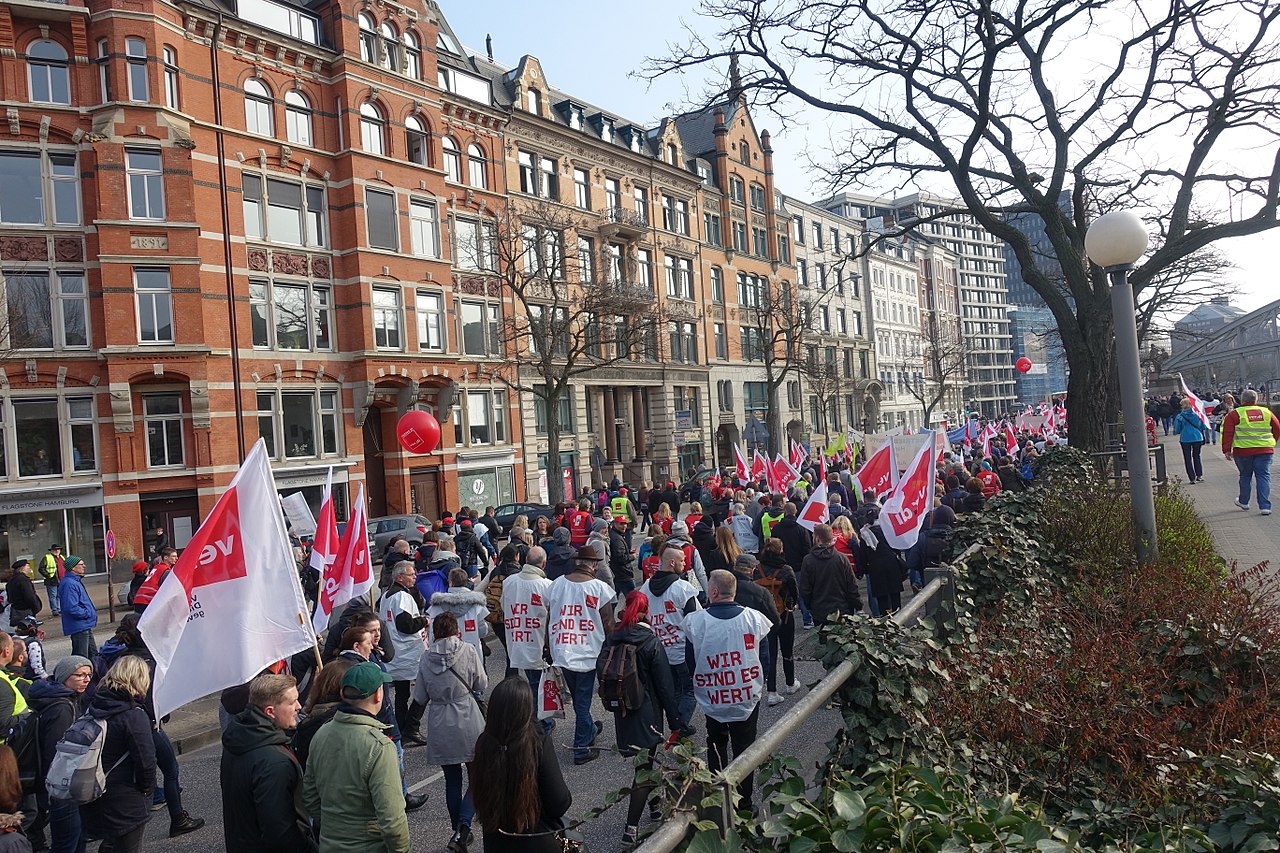All initiatives that truly improve people’s lives have one thing in common. They are collective efforts.
I was born in 1982. There are only a few glimpses of life in the GDR that I recall.
But I do remember that daily lives seemed more collectively organized.
Our apartment block had a party room in the basement. It was often used to host get-togethers with all families in the whole block. Now, I only know my next-door neighbors. I rarely see them. They are a lovely couple, though. I don’t know anything about anyone else living in the other apartments. Most of them I have never seen. This is perfectly normal in a capitalist society. Our society has promoted the ideal of the individual for the sake of profit.
We have a self-help industry, that makes billions. Most self-help advice completely ignores the role of interpersonal relations in mental health. Instead, We celebrate the idea of the self-made man, who overcomes all the odds. In Hollywood, the hero is always a lone wolf, who takes out all the evildoers alone.
Everything is self-service, so you don’t need to have any human interactions. Not even with the cashier at your local supermarket. Everyone should have their own car. Their own apartment. Even their own, personalized popcorn.
The Human Cost of Individuality
In almost all Western countries, there exists a particular social phenomenon. People die in their apartments and rot for weeks. Sometimes even months. And nobody notices their absence. It happens daily. When I tell this to acquaintances from Africa or South America, they never believe me.
Because in their cultures they don’t leave their elderly to rot. It is not considered appropriate. Here, it is the norm. In the best case, Grandma gets sent to a nursing home, where nobody ever visits.
It’s not only old people, though. It’s all age groups. 17% of Germans frequently feel lonely. Western countries have the highest suicide and depression rates on the globe.
This obsession with individualism makes it impossible for our civilization to survive.
Civilization Depends on the Collective
All civilizations thrived because they were collectively organized. Even hunter-gatherer societies organized in collectives. Sapiens developed a unique ability to form complex collaborations. This put us ahead in the evolutionary race.
Take a look at all the amenities, we take for granted. They are the result of collective efforts. Many years ago, I dislocated my shoulder in an accident. It was fine for many years. At some point, I had to get surgery. My shoulder no longer wanted to stay in place.
It was a small surgery. Yet I counted at least 5 people standing around me. Then I passed out from the sedative. That surgery significantly improved my quality of life. It was the result of a collective effort. Between doctors, nurses, and even administrative staff in the hospital.
I paid nothing. Because I lived in Denmark. A country, that has a collective, universal healthcare system. My anecdote aside, you can also look at important milestones of civilization. You will always notice one thing. They are the result of collective efforts.
Only Adam Was Alone in the World. The Rest of Us Are Here Together
Why did we develop Covid vaccines so quickly? Because we could fall back on decades of vaccine research. And we could mount a collective effort to cover the costs of development. By investing tons of tax money into research. Taxes that we collectively paid. Here in Germany, I am entitled to 30 days of paid holiday a year. That too is the result of a collective effort.
An effort made by unions and workers more than a hundred years ago. The same effort puts a limit on how many hours my employer can ask me to work for him in a day. And there are clear limits on how dangerous tasks I can be asked to perform on the job. All thanks to collective unions, who made this happen.
Elon Musk did not build a single Tesla. Without his engineers and workers, no Tesla would have ever left the factory. Amazon depends on thousands of workers to pack, ship, and inventory every item. The Pharaos did not build the pyramids. Only the collaboration between thousands of workers made it possible.
Why Capitalism Relies on Individualism
In short, it is good for profit.
If everybody has to buy the same item for themselves, instead of sharing, it means more profits. You can sell more items. We should all live in our own apartments. That way each of us needs to buy our own furniture. Our own household appliances. Pay our own rent.
The increased demand will ensure that more profits can be made. Never mind that it also means more resource consumption. That it destroys the material foundation for life to exist on this planet. The other advantage is, that it absolves the capitalist elite from responsibility. We can blame the individuals for everything.
- Climate Change exists because you don’t bike enough.
- You should find a better job if you don’t even earn enough to pay rent.
- If your boss emotionally abuses you, you should practice more self-care
We Need the Collective to Thrive
All great accomplishments of civilization are the result of collective efforts. All our modern infrastructure requires complex collaborations between workers and administrators. Inventions and discoveries are not made in a vacuum. They rely on previous insights and discoveries. Made by generations of inventors and scientists before us.
We cannot solve our planetary crisis on an individual level. What we need are resilient, adaptable communities that are as self-reliant as possible.
As an individual, I can never be fully self-sufficient. I can maybe grow some of my own food and take care of my house. But I also need clothes. And what about the food I cannot grow myself? What about energy?
We also need healthy relationships to lead healthy lives. Building these relationships is also self-care. No matter what the self-help books from the airport kiosk tell you.
It is time to say goodbye to capitalism’s false idea of individualism.
Or, as one of my favorite writers on Medium, indi.ca puts it.
Being a citizen and a consumer all the time sucks. We’re social animals and being disconnected hurts
Indi.ca





